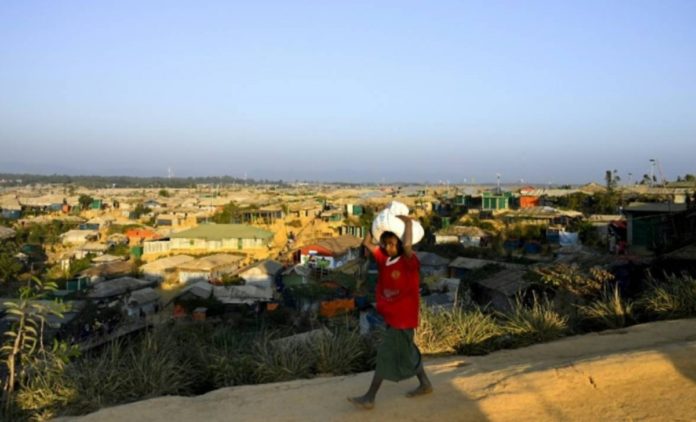BANGKOK, June 23, 2019 (AFP) – Southeast Asian leaders gathered in Bangkok
on Saturday determined to drive forward the world’s largest commercial pact,
with the trade war between the US and China clouding the outlook for their
export-led economies.
Disputes in the flashpoint South China Sea and Myanmar’s persecution of
Rohingya Muslims are expected to be tussled over by leaders on Sunday, the
final day of the Association of Southeast Asian Nations (ASEAN) summit.
But trade has taken centre stage with ASEAN leaders keen to hasten the
signing of a China-drafted commercial deal covering around half the world’s
population.
The Regional Comprehensive Economic Partnership (RCEP) includes all 10
ASEAN economies, plus India, Japan, South Korea, Australia and New Zealand.
It is seen as a mechanism for China to draft the rules of Asia-Pacific
trade, following a US retreat from the region.
While tit-for-tat tariffs between the world’s biggest two economies have
seen some manufacturers flee China to safer ASEAN hubs, economists say the
big picture for global growth is bleak and member countries are keen to boost
trade with the RCEP.
A draft of the chairman’s statement seen by AFP said the bloc was
committed to finishing RCEP “negotiations within this year” and would “exert
relentless efforts to reach this target.”
“The faster it (RCEP) gets implemented the better,” Martin M. Andanar,
Philippines Communications Secretary, told reporters earlier.
Progress on the deal has stuttered in recent months with India digging in
over fears cheap Chinese goods could flood its massive consumer market.
– Rohingya talks –
ASEAN is frequently criticised as a soft forum where diplomatic niceties
often outweigh concrete action on pressing problems.
Foreign ministers discussed the repatriation of more than 740,000 Rohingya
refugees that have fled Myanmar into Bangladesh.
Malaysia, which speaks up most strongly for the Rohingya, said the
perpetrators of violence against the Muslim minority must “be brought to
justice”.
Repatriation “must include the citizenship of the Rohingya,” Malaysian
Foreign Minister Saifuddin Bin Abdullah said according to a tweet by his
ministry.
Myanmar’s de facto leader Aung San Suu Kyi is in Bangkok for the meeting.
ASEAN has come under fire for suggesting the refugees should go back to
Myanmar within two years, according to a leaked report seen by AFP — though
virtually none have volunteered to return so far, citing safety concerns.
The bloc also agreed on Saturday to “take concrete actions in combating”
marine debris — including plastic — across the region in the “Bangkok
Declaration”, though activists have said it doesn’t go far enough in curbing
single-plastic use.
Regional leaders are set to continue to tackle thorny South China Sea
issues on Sunday, with a draft Code of Conduct agreement up for review.
Observers however doubt any major progress will be made.
Discussions so far have been overshadowed by a recent dust-up in the sea
between a Chinese ship that rammed a Filipino fishing boat and caused it to
sink.
Beijing claims most of the resource-rich waterway.
Manila said a joint investigation into the incident has been launched,
adding that the run-in would not derail Code of Conduct talks.



